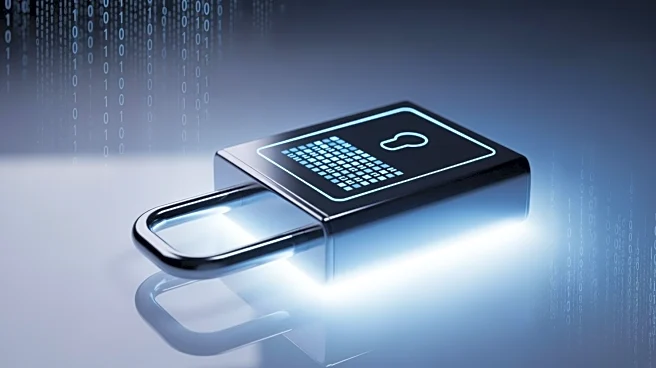What's Happening?
U.S. District Judge Jessica Clarke declared a mistrial in the $25 million cryptocurrency fraud case against Anton and James Peraire-Bueno, MIT-educated brothers. The decision came after the jury, which
had been deliberating for three days, sent a note indicating they were unable to reach a verdict. The note, signed by all 12 jurors, mentioned sleepless nights and emotional distress, with half of the jury breaking down in tears during deliberations. The case involved allegations of fraud related to cryptocurrency investments, and the trial had been closely watched due to the brothers' educational background and the significant amount of money involved.
Why It's Important?
The mistrial in this high-profile case underscores the complexities and emotional challenges juries face in cryptocurrency-related fraud trials. The inability to reach a verdict highlights the difficulties in understanding and adjudicating cases involving digital currencies, which are often seen as opaque and complex. This development may impact future legal strategies in similar cases, as it reflects the challenges in presenting and interpreting evidence in the rapidly evolving field of cryptocurrency. The case also raises questions about the effectiveness of current legal frameworks in dealing with digital financial crimes, potentially prompting calls for clearer regulations and guidelines.
What's Next?
The declaration of a mistrial means that the case could be retried, although it is unclear when or if this will happen. The prosecution may decide to reassess their strategy, considering the emotional toll on the jury and the complexities involved in the case. Legal experts and stakeholders in the cryptocurrency industry will likely monitor the situation closely, as it could influence future regulatory and legal approaches to cryptocurrency fraud. The brothers' legal team may also seek to negotiate a settlement or plea deal to avoid another lengthy and uncertain trial.
Beyond the Headlines
This case highlights the broader implications of cryptocurrency fraud on the legal system and the need for specialized knowledge in digital currencies among legal professionals. It also points to the emotional and psychological impact such cases can have on jurors, who may struggle with the technical aspects and ethical considerations involved. The mistrial may prompt discussions about jury selection and support mechanisms in complex financial trials, ensuring jurors are better equipped to handle the pressures and intricacies of such cases.












